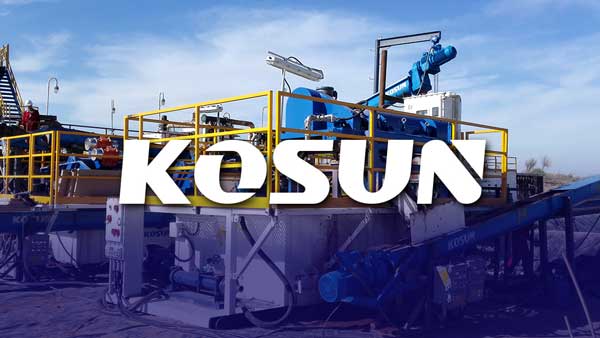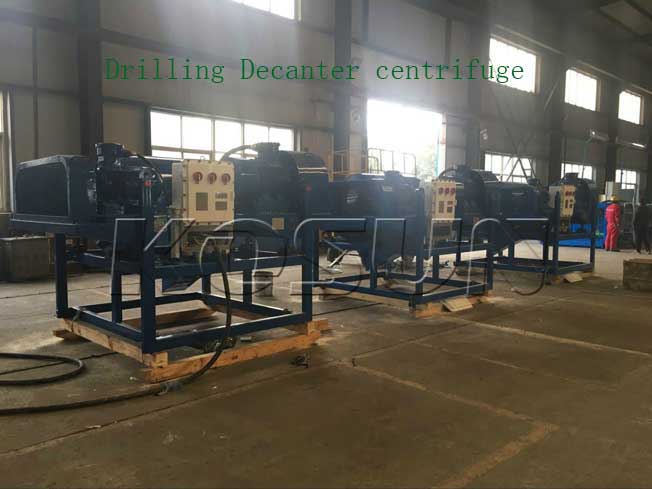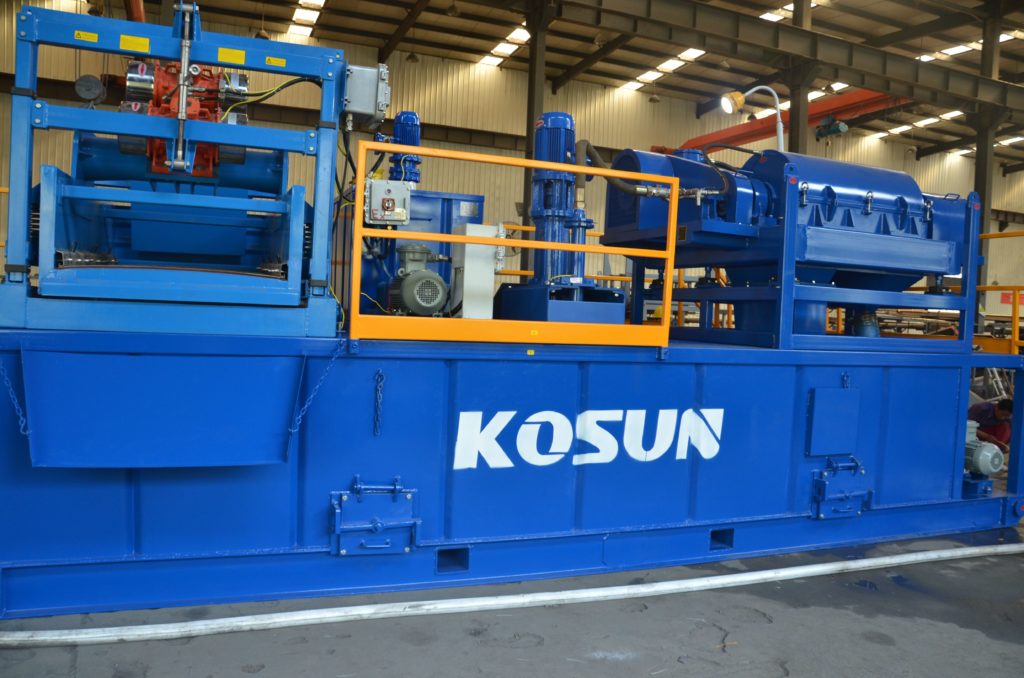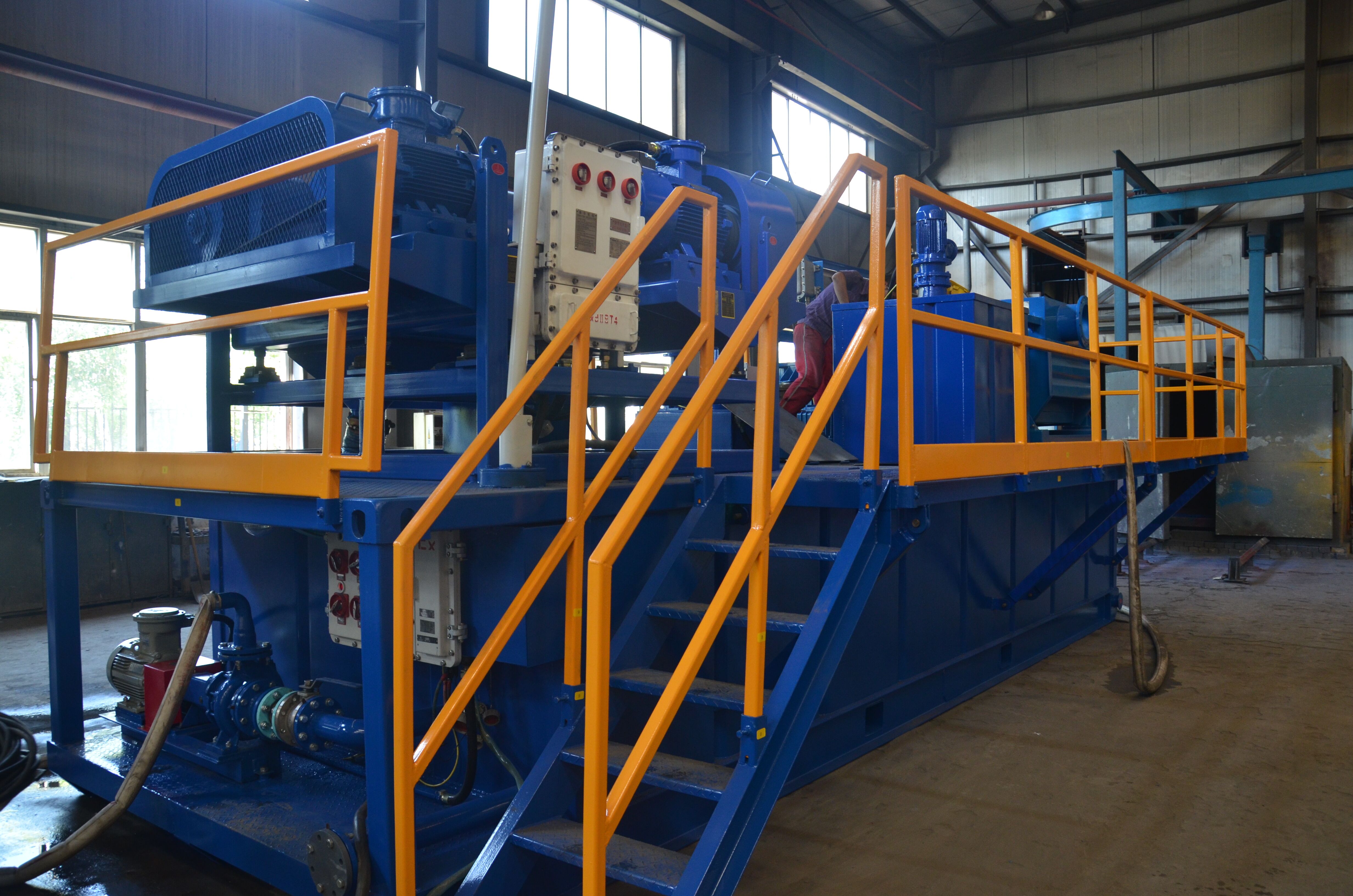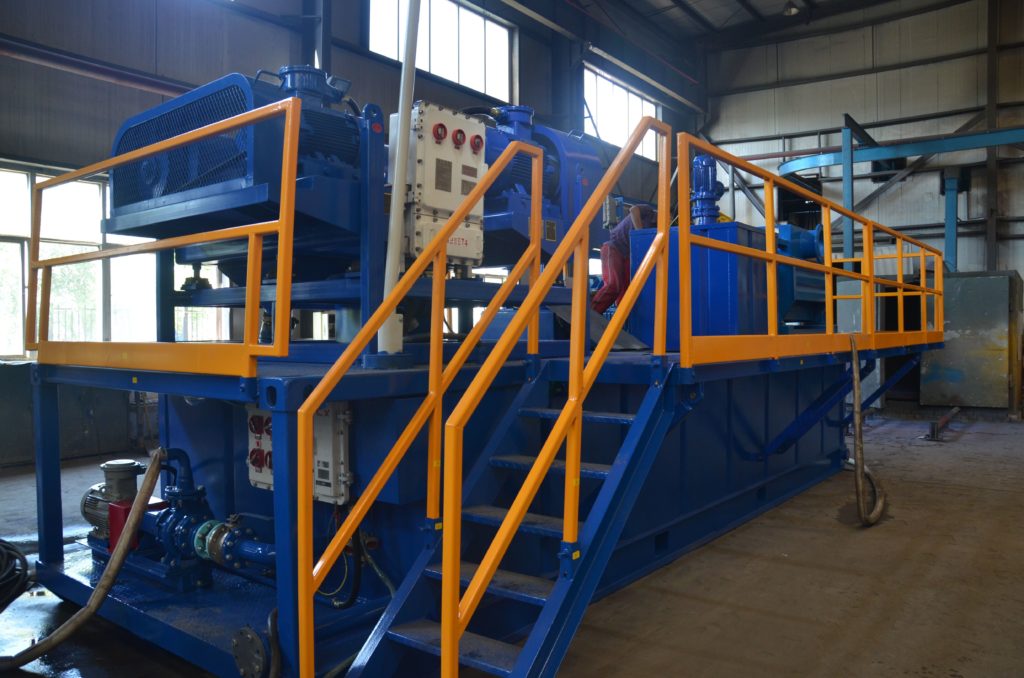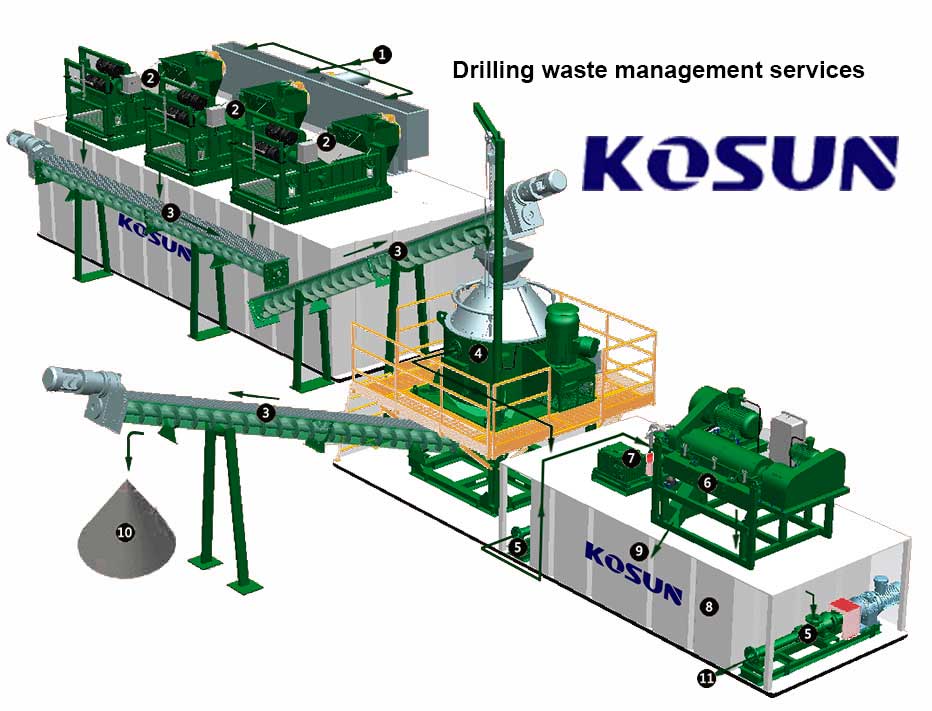Drilling Waste Management System
Drilling waste management system is consist of several sets of equipment for conveying cuttings.
Oil and gas field enterprise solid waste mainly has three kinds: drilling waste mud, cuttings dryer, landing crude oil, sludge and oil sands.
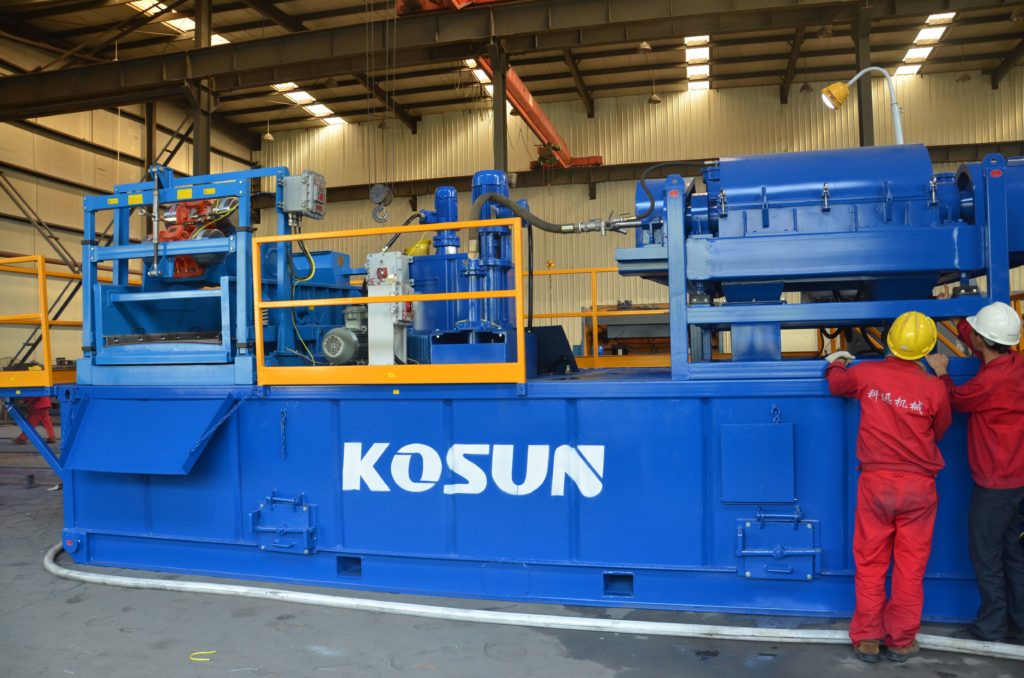
1, Drilling Waste Mud
(1) Classification: water-based drilling mud, oil-based drilling mud and gas-based drilling mud.
(2) the source:
First, due to changes in geological properties, the mud system to replace the sludge generated, that is not suitable for drilling engineering and geological requirements of drilling mud, drilling process, due to failure of part of the performance was discharged drilling mud ;
Second, after completion of drilling wells in the mud field. That is, the mud in the wellbore which is replaced by the clean water when the well is completed;
Thirdly, the mud which is generated by the leakage of the mud circulation system, that is, the drilling mud discharged by the circulatory system running, dripping, The waste mud yield is 634T / 104m, the discharge volume of drilling mud is about 40 × 104T / year, and the emission rate is about 40%
(4) The main pollutants: hydrocarbons, salts, all kinds of organic polymers, lignin sulfonate, some heavy metals (such as mercury, chromium, copper, lead, arsenic) and barite impurities.
(5) nature: PH value is high, about 8.5 ~ 12, basic; contains a certain amount of weighting agent and chemical treatment agent; some drilling mud contains oil; some contain toxicity (due to drilling formation contains Toxic substances, additives contain toxic substances).
(6) Hazard: high pH, high concentrations of soluble salts and petroleum affect the structure of soil and plant growth hazards; harmful heavy metal ions such as hexavalent chromium, divalent mercury, divalent cadmium, divalent lead and Organic compounds that can not easily be degraded by animals and plants, molecular polymers easily enter the food chain and accumulate in the environment or animals and plants, endangering the health and safety of human beings; organic waste treatment to increase the COD and BOD of aquatic organisms; Normal growth.



